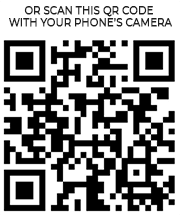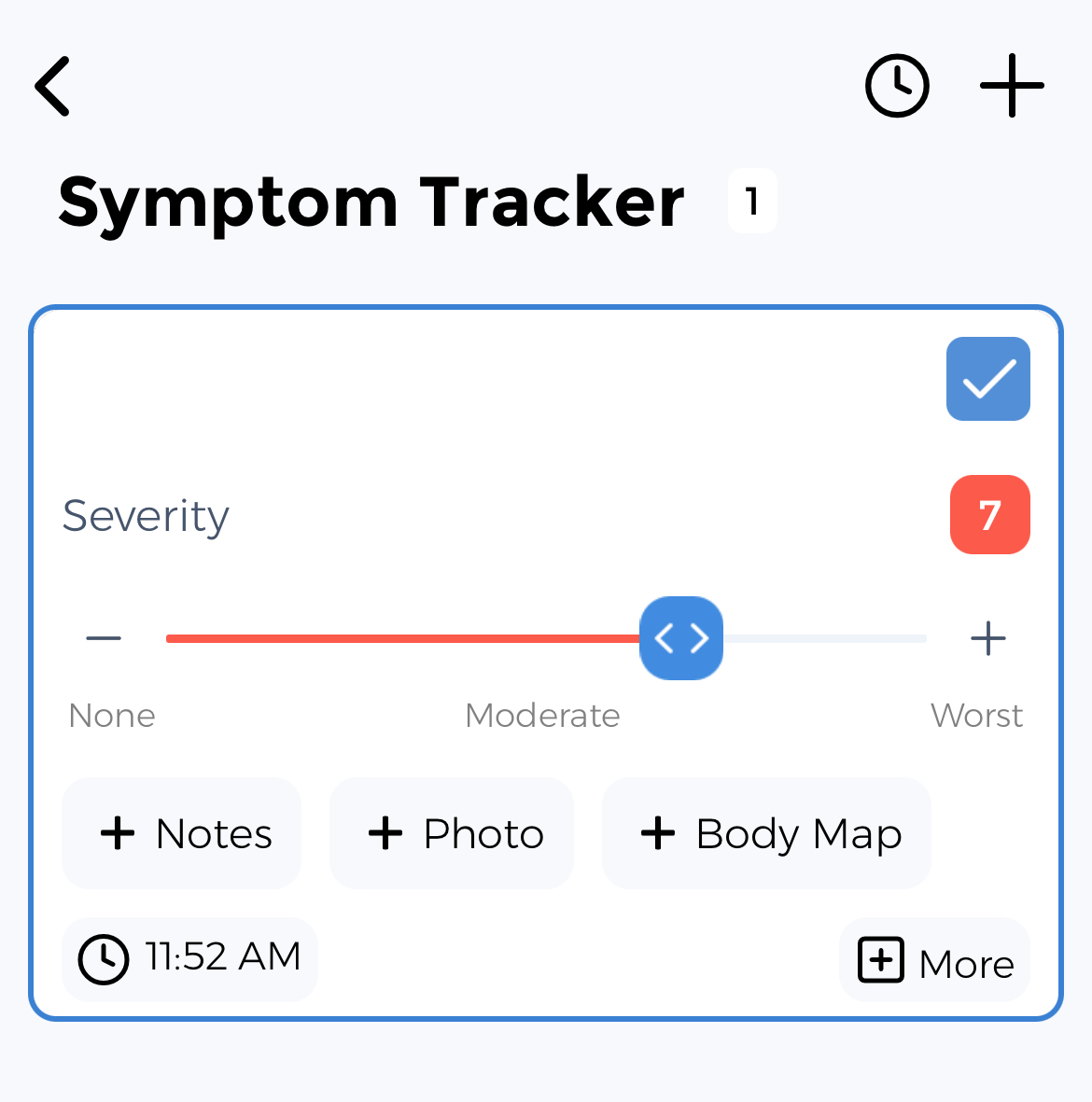Aortic Dissection Symptom Tracker: Your Health Assistant
Living with Aortic Dissection means dealing with severe chest pain, sudden severe back pain, shortness of breath, and more. But here's the truth: Data is your most powerful tool. Every logged symptom reveals patterns—so you can take informed action.
Aortic dissection is a life-threatening condition where the inner layer of the aorta tears, allowing blood to flow between the layers of the aortic wall and forcing them apart. This can lead to aortic rupture or decreased blood flow to organs. Tracking symptoms helps monitor recovery and medication effectiveness.
Key Aortic Dissection Symptoms You Should Track
Struggling with symptoms like these? Tracking them reveals patterns, triggers, and how they impact your daily life.
Severe chest pain
Sudden severe back pain
Shortness of breath
Difficulty speaking
Weakness
Loss of consciousness
Sweating
Pale skin
Different pulse strengths in arms
Stroke symptoms
Track Your Aortic Dissection Treatments
Tracking how these common treatments affect your symptoms can help you and your healthcare provider optimize your care plan:
Our tracker helps you monitor when you take medications and how they affect your symptoms over time.
Standardized Aortic Dissection Assessments
Complete these evidence-based assessments in the App to measure your severity and monitor your progress:
⚡ Knowledge Is Your Superpower
The difference between feeling overwhelmed by Aortic Dissection and feeling in control starts with data. When you track your symptoms, you transform uncertainty into clarity. Every data point brings you closer to understanding your unique patterns.
It's free to try for anyone—whether you're managing your own condition, supporting a child, helping an aging parent, or assisting a partner. Our tracker adapts to your specific role in the health journey.
How the CareClinic Aortic Dissection Symptom Tracker Adapts to Your Needs
Adults
Caregivers
Parents of Children
Young Adults
Your Complete Aortic Dissection Management Toolkit
Uncover Patterns & Insights
Map your Aortic Dissection symptoms like a detective solving a case.
Understand Your Medication's Impact
Turn guesswork into strategy. See how treatments affect your well-being with clear health insights.
Objectively Measure Your Progress
Use clinically validated tools to objectively measure your progress.
Other Tools You May Like...
Plus 2 more specialized tracking tools available
Access All Tracking ToolsAlso Supports Other Conditions Like
Aortic Aneurysm Tracker
Aortic Aneurysm warriors use our tracker to monitor chest pain, back pain.
High Blood Pressure (Hypertension) Tracker
High Blood Pressure (Hypertension) warriors use our tracker to monitor Usually asymptomatic, Severe hypertension may cause: headaches, shortness of breath, nosebleeds, dizziness, chest pain, visual changes (rare).
Marfan Syndrome Tracker
Marfan Syndrome warriors use our tracker to monitor tall and thin build, long, slender fingers.
Bicuspid Aortic Valve Tracker
Bicuspid Aortic Valve warriors use our tracker to monitor fatigue, shortness of breath.
Success Stories from Our Community
"The emotional relief of understanding my Aortic Dissection better cannot be overstated. When traditional approaches weren't enough, but once I could see how my condition changes over time, my anxiety decreased dramatically."
"After my diagnosis with Aortic Dissection, I felt lost. This tracker became my guide. I noticed my sweating responded better to sleep schedule than medication alone, and that knowledge alone made a huge difference."
Take Control of Your Aortic Dissection Journey
Transform from feeling like a passive patient to becoming an informed self-advocate. Join thousands who've discovered new insights about their condition.
Designed by people who understand the daily challenges of managing chronic conditions, we're here to support you and your ❤️ ones.
Download Your Aortic Dissection Tracker NowYour Data is Protected
Private & Secure
HIPAA Compliant
GDPR Compliant
Never Sell Data
Your data is yours: You get full control over who can view your information. CareClinic keeps all your data secure and encrypted.
References based on studies by:

